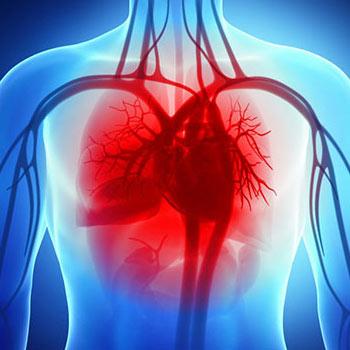Heart failure is a serious medical condition affecting millions worldwide. To effectively manage this condition and improve patient outcomes, specialized centers known as heart failure clinics have emerged as crucial resources in modern healthcare. In this comprehensive guide, we delve into the specifics of what a heart failure clinic entails, its purpose, services offered, and the benefits it provides to patients.
What is heart failure and how can it be understood?
Before diving into the details of heart failure clinics, it's essential to grasp the fundamentals of heart failure itself. Heart failure occurs when the heart is unable to pump enough blood to meet the body's needs. This can result from various conditions such as coronary artery disease, hypertension, or prior heart attacks, leading to symptoms like shortness of breath, fatigue, and fluid retention.
What is a Heart Failure Clinic?
A heart failure clinic is a specialized healthcare facility dedicated to managing patients with heart failure. Unlike conventional cardiology practices, these clinics focus exclusively on providing comprehensive care tailored to the unique needs of heart failure patients. They are staffed by multidisciplinary teams consisting of cardiologists, nurses, dietitians, and other healthcare professionals trained in heart failure management.
What services are offered at heart failure clinics?
Diagnostic Services
Heart failure clinics offer advanced diagnostic tools to assess the severity and underlying causes of heart failure. This may include echocardiograms, stress tests, and blood work to monitor biomarkers like B-type natriuretic peptide (BNP).
Medical Management
One of the primary functions of a heart failure clinic is optimizing medical therapy. This involves prescribing medications such as ACE inhibitors, beta-blockers, diuretics, and newer treatments like angiotensin receptor-neprilysin inhibitors (ARNIs) to improve heart function and alleviate symptoms
Lifestyle Counseling
Heart failure clinics emphasize the importance of lifestyle modifications in managing the condition. Patients receive personalized guidance on dietary changes, exercise programs, and smoking cessation to promote heart health and overall well-being.
Monitoring and Follow-up
Regular monitoring is essential in heart failure management. Clinics schedule frequent follow-up visits to monitor patient progress, adjust medications as needed, and intervene promptly if symptoms worsen
Patient Education
Educating patients about their condition is a cornerstone of heart failure clinics. Providers explain the nature of heart failure, its symptoms, signs of worsening, and the importance of adherence to prescribed therapies
Benefits of Heart Failure Clinics
Specialized Care
By focusing exclusively on heart failure, clinics offer specialized expertise that may not be available in general cardiology practices.
Improved Outcomes
Studies have shown that patients managed in heart failure clinics experience fewer hospitalizations and improved quality of life compared to those receiving standard care.
Comprehensive Approach
he multidisciplinary nature of heart failure clinics ensures that patients receive holistic care addressing medical, nutritional, and emotional needs.
Patient Empowerment
Through education and personalized care plans, clinics empower patients to actively participate in managing their condition, leading to better self-care and treatment adherence.
Who Should Consider Visiting a Heart Failure Clinic?
Patients diagnosed with heart failure, especially those experiencing symptoms such as shortness of breath, fatigue, or swelling in the legs, can benefit significantly from visiting a heart failure clinic. Additionally, individuals at high risk of developing heart failure due to underlying cardiovascular conditions should consider proactive consultation.
In conclusion, a heart failure clinic represents a specialized healthcare setting designed to optimize the management of heart failure through comprehensive care, tailored treatment plans, and patient education. By leveraging advanced diagnostic tools, evidence-based therapies, and multidisciplinary expertise, these clinics play a pivotal role in improving outcomes and enhancing quality of life for patients with heart failure.
Whether you are currently living with heart failure or seeking preventative care, consulting a heart failure clinic can provide invaluable support and guidance on your journey toward heart health and well-being.

